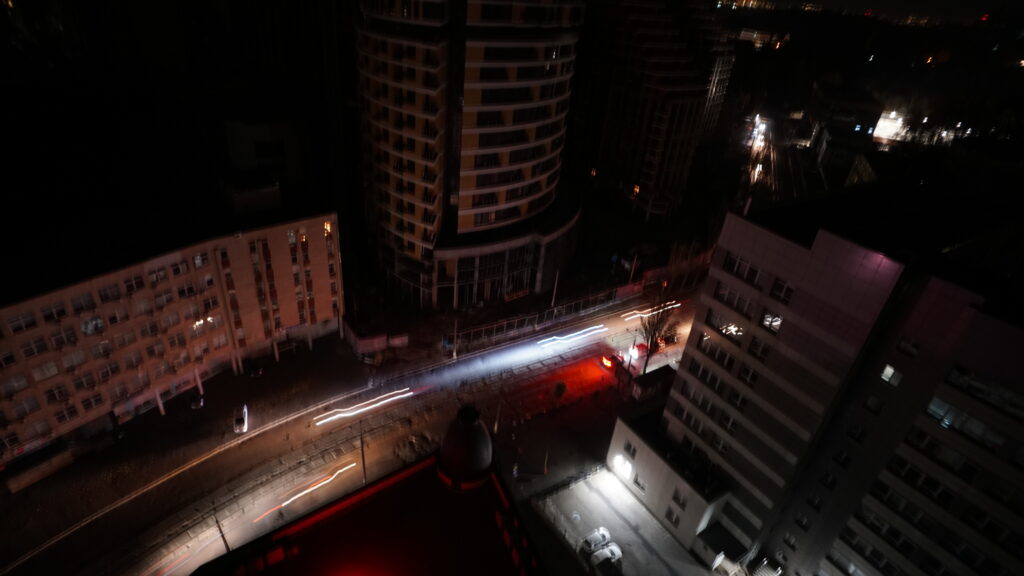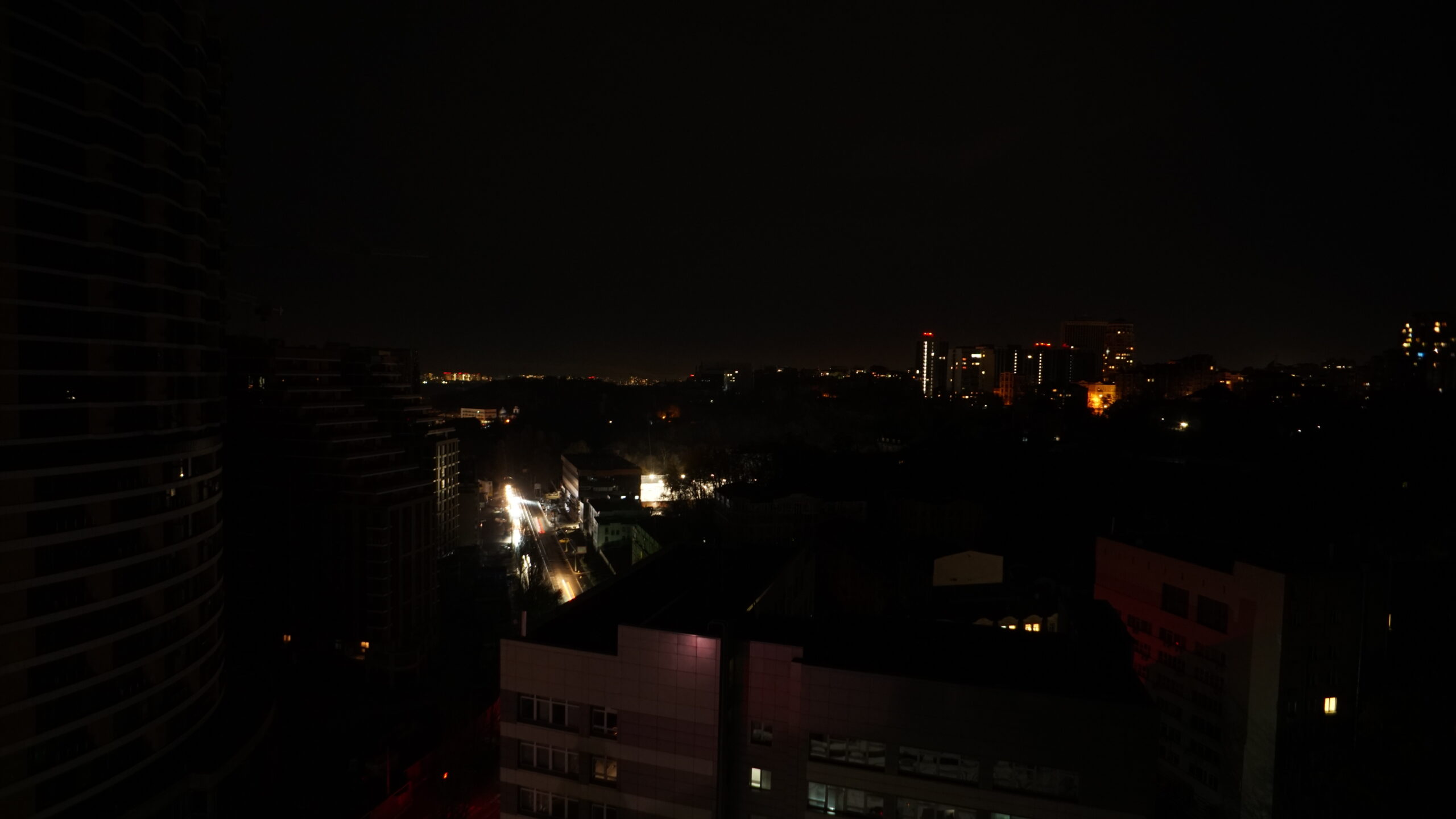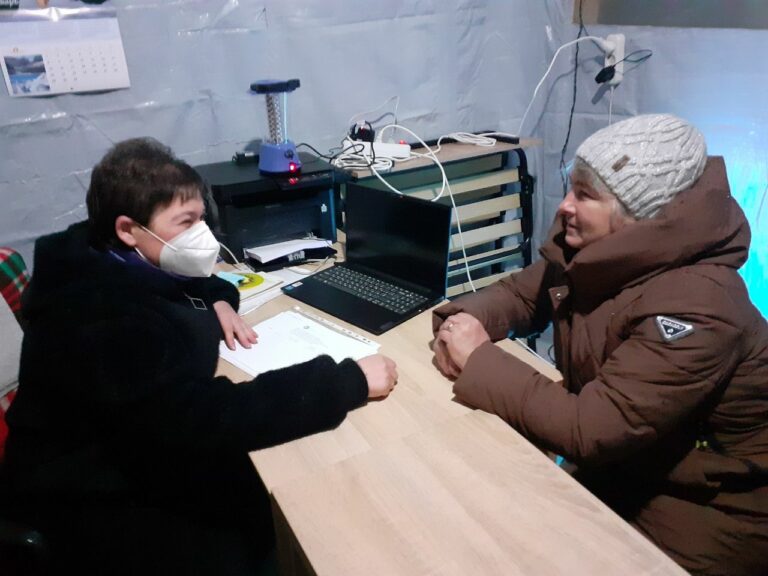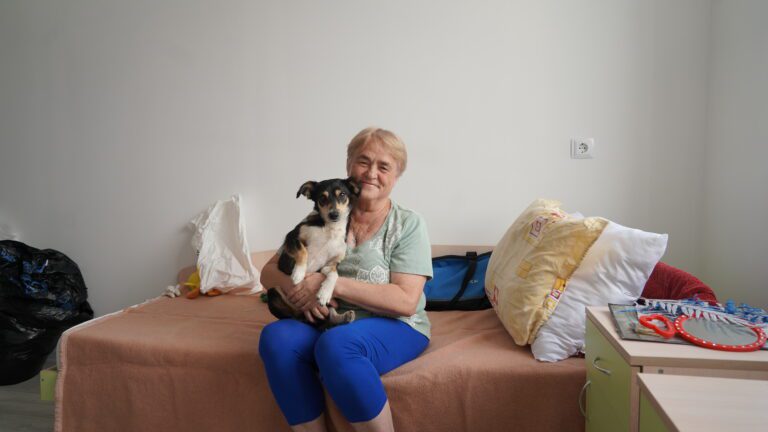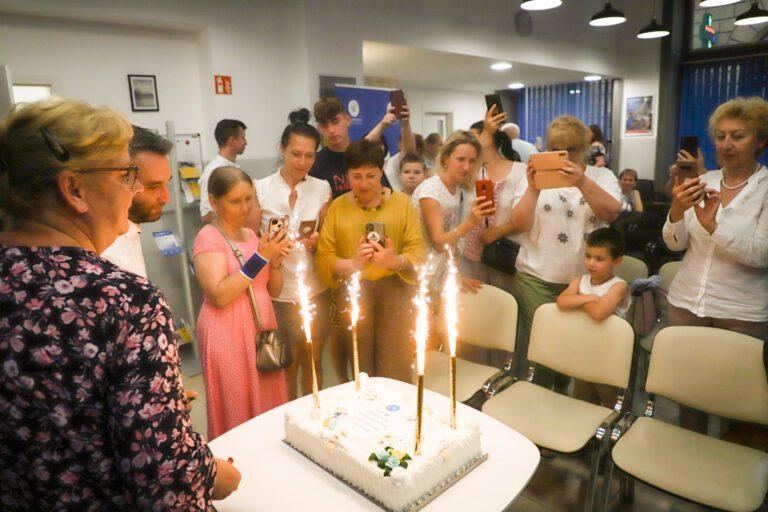City in the dark
“Hi, good morning! Do you have electricity?”
“Yes, but no water.”
This is how countless messages and conversations begin in Ukraine in the wake of the air strikes on the country’s energy infrastructure. After the third week, the disruption of energy supplies and the need to adapt to it are slowly becoming part of everyday life in cities relatively untouched by the ravages of war. Ironically, the darkness shines light on the fact that electricity is needed for almost everything in the modern age. In Ukraine, it has become clear that normality is dictated by the circumstances.
In more fortunate countries, the electricity round the clock is the norm. In Ukraine, slowly the lack of electricity is becoming the norm. Now, in Ukrainian cities spared from the most horrific aspects of war, there is a growing appreciation of what is not usually given much attention in better-off countries.
Russian attacks on energy infrastructure have forced the Ukrainian authorities to ration power supplies. The power cuts in the capital, Kiev, used to last eight hours a day per district, today people are happy to get 6 hours of electricity a day. People prepare for these god-given 6 hours based on a schedule announced in advance by the energy supplier. Yet the situation in the capital is still ‘pleasant’ compared to what people in parts more affected by the war are facing every day. It speaks volumes that in Kyiv more and more elevators are now equipped with chairs and buckets for those who would be unlucky enough to get stuck until the elevator is back online.
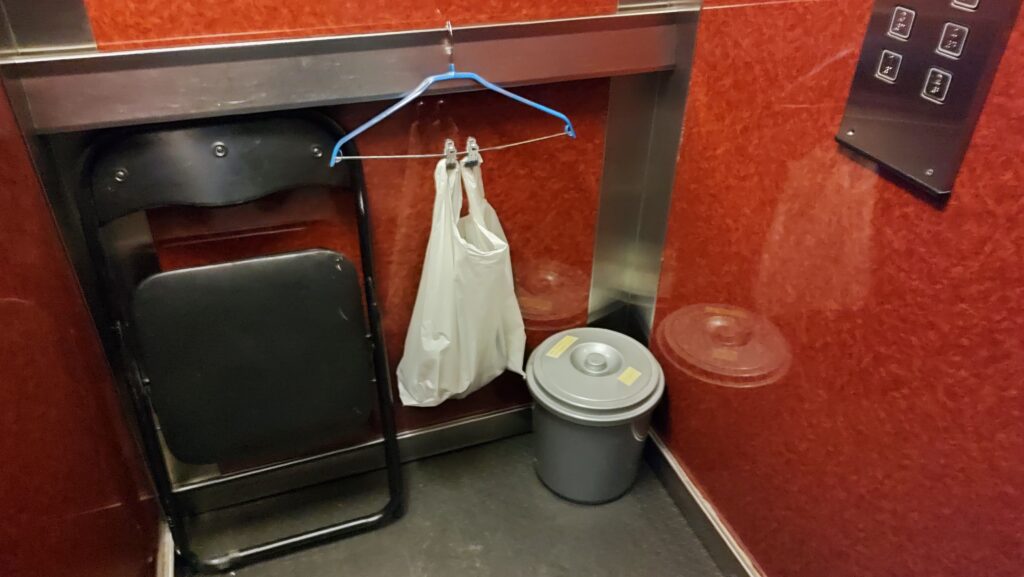

Citizens adjust to the electricity situation as much as they can: they reschedule work, shopping, cooking, and social life. Everyone adapts because there is simply no other choice. And it is getting worse. Especially, since the city’s administration now started talking about the possibility of a complete blackout to save energy for critical infrastructure.
‘Here we go again!’ frets Darina after the power unexpectedly went out. She cares for her bedridden father, machines keeping his condition stable. Darina watches the neighbours from the window to see if the lights are on. Meanwhile, she’s exchanging messages to find out how long the blackout will last. She’s close to panicking. Her relative calm is kept by the knowledge that she has already invested in a high-powered battery at a considerable cost. ‘Dad’s machines are under power.
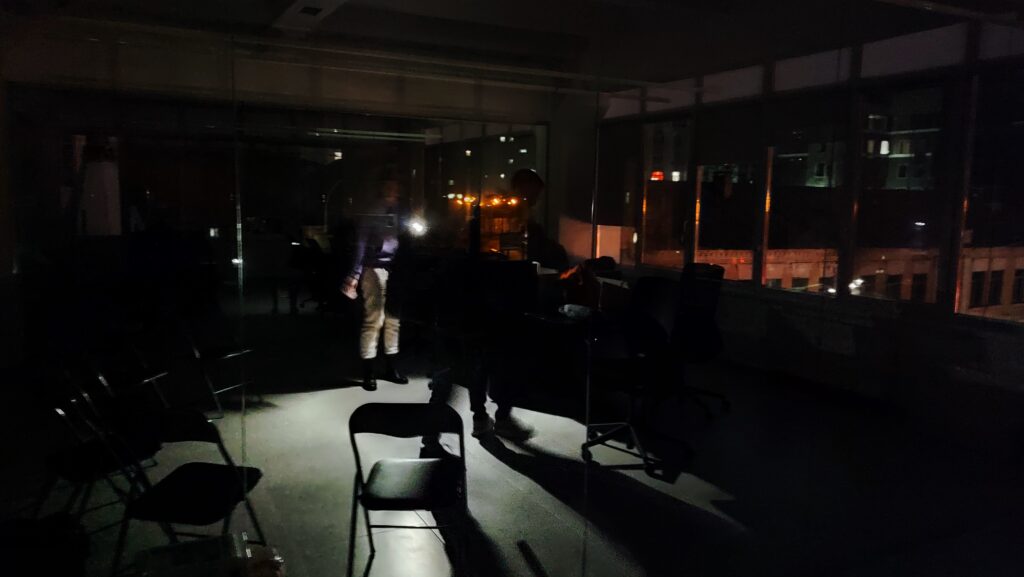

She is far from being calm. As the frustration grows, her eyes dart right and left – she is calculating vigorously in hear head. A complete blackout would be catastrophical. ‘What if some unforeseen circumstance causes the power to go out for days? The battery lasts half a day, then what?’ she asks rhetorically.
Darina is immediately relieved when the light comes back on after an hour of unexpected, unscheduled power outage. ‘Wow, I’ve never been so happy to have the lights on. It’s times like these when you learn to appreciate the little things, isn’t it?’
Darina’s story is neither unusual nor extraordinary. She is one of a number of Ukrainians who may be eligible for Hungarian Interchurch Aid’s cash for protection programme. This cash assistance modality is meant to support households with elderly family members or disabled person(s) to care for; large families with several children, families with pregnant or breastfeeding mothers, or only one breadwinner to care for the children.
Although the authorities are doing their utmost to ensure energy supplies, expert analysis suggests that the situation will only worsen if Russia continues its relentless attacks on civilian infrastructure. Ukraine is facing a dark and cold winter, and power cuts and water shortages which are both physically and mentally taxing, are likely to become more frequent. As the crisis deepens, Hungarian Interchurch Aid is committed to give as much support as possible to those affected by the war in Ukraine.
This article was written by candlelight.
